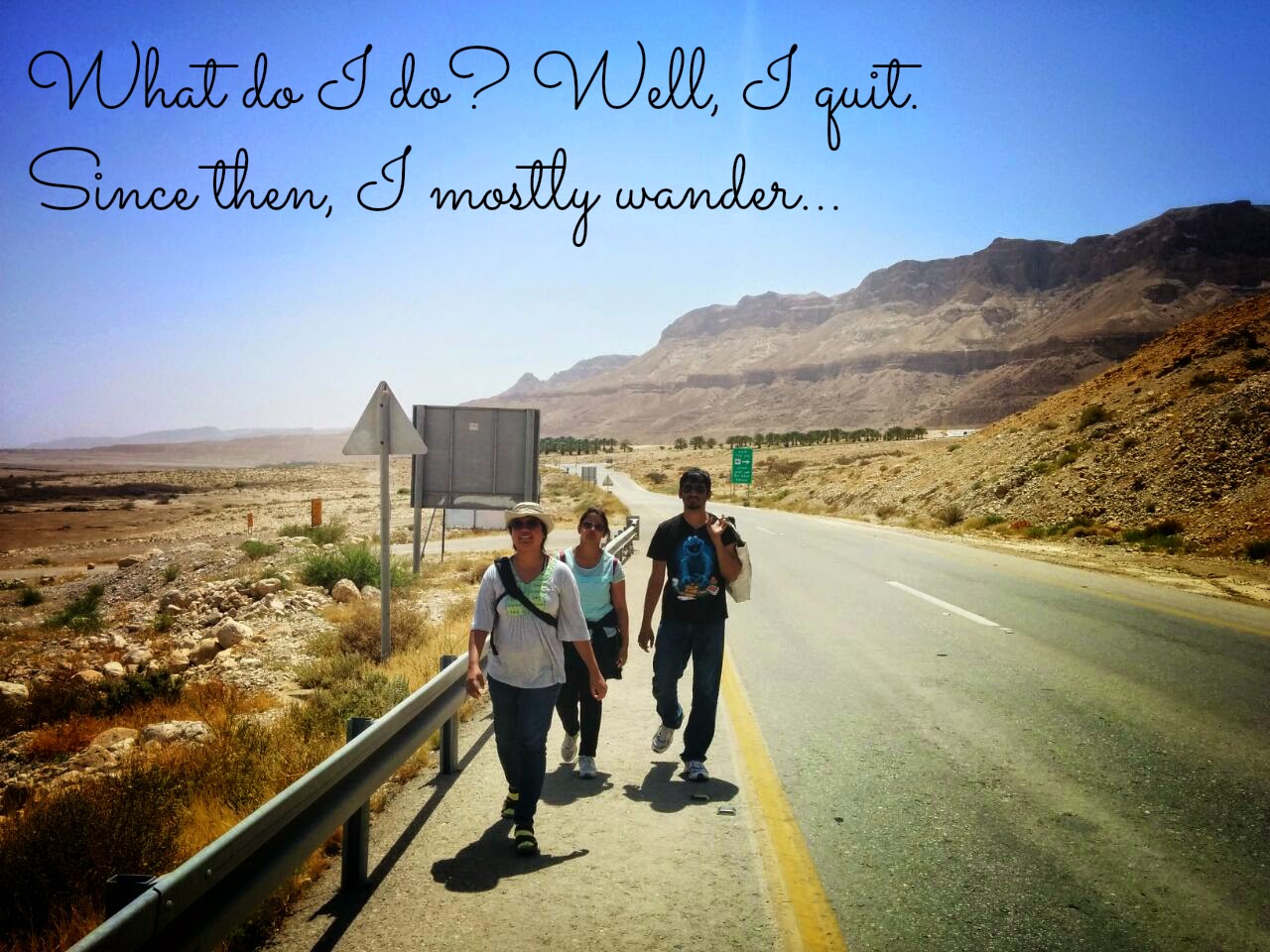The answer to that question has always been plain and simple for me, until now. For the first couple of months in Tel Aviv I kept telling R that I would back to India by summer and that he could stay back complete his fellowship. I surely did not adapt to the change very well, then again, who does?
It took a while. The other day, I called my mother to inform her that maybe R would visit India at some point but I would return only when the fellowship ends. The transition was slow but I can point to one instance when I noticed that I had made the transition.
At social gatherings or when I met new people here, their first and most common question to me was “What do you do?” I used to squirm to respond to that question. I did not hate to say that I was here only because my husband moved here. It would have made me feel better if I had a reply that began with “I do X” rather than “My husband does X.” Of course, I would explain how I got here and then mention that I am exploring Tel Aviv, developing hobbies, etc. That never did seem enough.

A week ago, at my Hebrew class, we were doing a round of introductions for the new students, when it was my turn to introduce myself. In the past I have maintained “ani lo ovedet” or I do not work. In the last class though, I decided to go with “ani hit’parati” or I quit and continued to tell them what I do in Tel Aviv. My decision to go with “I quit” was simple, I wanted to use a new word. The consequence of that small action has been remarkable. There is freedom in saying that I quit to explore a new land and more importantly explore myself. Since then, I have become more confident about answering the question I used to most dread.
It took a while. The other day, I called my mother to inform her that maybe R would visit India at some point but I would return only when the fellowship ends. The transition was slow but I can point to one instance when I noticed that I had made the transition.
At social gatherings or when I met new people here, their first and most common question to me was “What do you do?” I used to squirm to respond to that question. I did not hate to say that I was here only because my husband moved here. It would have made me feel better if I had a reply that began with “I do X” rather than “My husband does X.” Of course, I would explain how I got here and then mention that I am exploring Tel Aviv, developing hobbies, etc. That never did seem enough.

A week ago, at my Hebrew class, we were doing a round of introductions for the new students, when it was my turn to introduce myself. In the past I have maintained “ani lo ovedet” or I do not work. In the last class though, I decided to go with “ani hit’parati” or I quit and continued to tell them what I do in Tel Aviv. My decision to go with “I quit” was simple, I wanted to use a new word. The consequence of that small action has been remarkable. There is freedom in saying that I quit to explore a new land and more importantly explore myself. Since then, I have become more confident about answering the question I used to most dread.
In the meantime, I went all-out trying to find work opportunities. A few weeks ago I began volunteering for the Tel Aviv Municipality as a content writer. The work is sporadic, but if some one wants a more traditional reply to “what do you do” I have a reply for that too, now.
I so know the feeling, from the early days in Toronto. Weird how I'm happier to be defined by a career than a spouse or a child! (People should find better conversation starters :P)